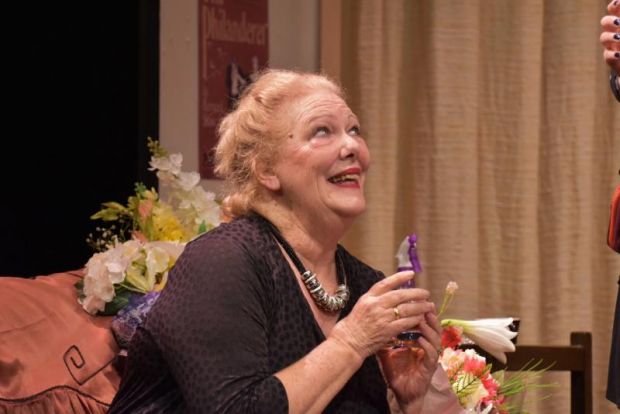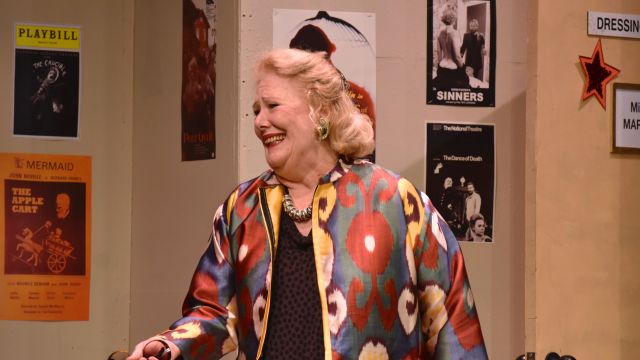The Actress
Tonight is the final performance of the great and celebrated actress Lydia Martin. Keenly aware that she is on the verge of the age when roles dry up, she’s made the decision to upend her life by throwing it all in and running off to live in Geneva with a Swiss banker. Funny, poignant, dripping with irony, Canberra Rep’s The Actress haughtily drapes itself over more than one boundary. Peter Quilter’s script offers directors leeway to emphasise different nuances to tweak the emotional tone. In this ambiguity and by including sections of The Cherry Orchard, Quilter invokes Chekhov, and also to some extent Shakespeare with his author’s note leaving the setting to the production. But for all its classical allusions, The Actress does not take itself so seriously. The dialogue has that very English sarcasm and irony with hilarious lines throughout.

Aarne Neeme has chosen to make Lydia Martin (Liz St Clair Long) a sympathetic character from the outset. St Clair Long seems genuinely touched by the bouquets that flood her dressing room, and there is a charm to her that makes you forgive behaviour that’s demanding and abusive. Certainly her long suffering dresser, Katherine, forgives her far more than she deserves. (Sally Rynveld’s Katherine has the quiet patience of a saint.) As Lydia adjusts her makeup and goes through her ritual, she is visited by a succession of people: her slightly wild and unkempt daughter Nicole (Kate Harris), her elderly fiancé Charles (Saban Berrell), her agent Harriet (Jane Ahlquist), the theatre manager (Jazmin Skopal) and her ex-husband Paul (Rob de Fries).

Quilter’s symbolism is fairly overt—ex-husband Paul represents nostalgia for and the tug of a possible family life long ago abandoned by Lydia, while husband-to-be Charles and her mooted move to cold, sterile but beautiful Geneva speak of a future that will be cold, still and boring, but beautiful. But the overlaying of a surface character onto that symbolism leads to the most uncomfortable part of the play. Paul goads Lydia into an embrace she clearly doesn’t want, then forces a kiss onto her. I understand that this is supposed to represent Lydia fighting her own subconscious wish to flee back to her abandoned family life, but it comes across, in the words of my daughter, ‘rapey’. I found myself wishing there were some way to covertly show on some level Lydia was attracted to the idea of returning to Paul without the coercion and harassment, given he was clearly supposed to be a sympathetic character.

The interwoven excerpts of The Cherry Orchard looked beautiful, with the audience positioned at the back of the stage watching Lydia from behind, as if from her point of view. A slight detraction was that because the actors were facing away, it was harder to hear them.
Despite Peter Quilter’s script arguably not quite reaching the height his own ambitions, Aarne Neeme and Canberra REP have put together an interpretation that is both fascinating and a lot of fun.
Cathy Bannister
Photographer: Eve Murray.
Subscribe to our E-Newsletter, buy our latest print edition or find a Performing Arts book at Book Nook.

